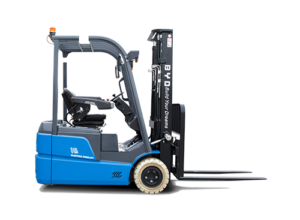Benefits of Switching from Diesel to EV Forklift Vehicles in today’s rapidly evolving industrial landscape, the choice of forklifts plays a crucial role in determining operational efficiency, cost-effectiveness, and environmental sustainability. With growing concerns over emissions, rising fuel costs, and the need for enhanced workplace safety, many businesses are exploring alternatives to traditional diesel forklifts. One such alternative gaining significant traction is the adoption of electric forklift vehicles. In this article, we’ll dig into why making the switch from diesel to electric forklifts makes perfect sense for businesses looking to future-proof their operations.
Introduction
Overview of the diesel forklift industry
Diesel forklifts have long been the workhorses of warehouses, distribution centers, and manufacturing facilities, thanks to their heftiness and ability to handle heavy loads. However, they come with inherent drawbacks, including emissions, noise pollution, and high fuel costs.
Introduction to electric forklifts
Electric forklifts, on the other hand, offer a cleaner, quieter, and more cost-effective alternative. Powered by rechargeable batteries, these vehicles produce zero emissions during operation and significantly reduce noise levels, making them ideal for indoor use and environmentally sensitive areas.
Environmental Benefits of Switching from Diesel to EV Forklift Vehicles
Emissions comparison
One of the most compelling reasons to switch to electric forklifts is their minimal environmental footprint. Unlike diesel counterparts, electric forklifts produce zero tailpipe emissions, contributing to improved air quality and reducing the carbon footprint of operations.
Noise pollution reduction
In addition to eliminating harmful emissions, electric forklifts operate much quieter than their diesel counterparts, reducing noise pollution in the workplace. This not only creates a more pleasant working environment but also allows for operations in noise-sensitive areas without disruptions.
Cost Efficiency
- Fuel and maintenance savings
Electric forklifts offer significant cost savings over their diesel counterparts, primarily due to lower fuel and maintenance costs. With electricity typically being cheaper than diesel fuel and fewer moving parts in electric motors, businesses can enjoy substantial long-term savings on operational expenses.
- Long-term investment benefits
While the initial investment cost of electric forklifts may be higher than diesel alternatives, the long-term benefits far outweigh the upfront expenditure. With rising fuel prices and tightening emissions regulations, electric forklifts provide a future-proof solution that offers greater stability and predictability in operating costs.
Performance and Efficiency
- Power and torque comparison
Contrary to common misconceptions, electric forklifts deliver comparable or even superior performance to diesel counterparts. With instant torque delivery and precise control, electric forklifts excel in maneuverability, acceleration, and lifting capacities, ensuring optimal productivity in diverse operational scenarios.
- Charging infrastructure and downtime
Advancements in battery technology and charging infrastructure have addressed the historical limitations of electric forklifts, such as limited range and downtime for recharging. With rapid charging capabilities and opportunity charging options, businesses can seamlessly integrate electric forklifts into their operations without compromising efficiency.
Regulatory Compliance
- Emission regulations
As governments worldwide continue to tighten emissions regulations, businesses face increasing pressure to adopt cleaner technologies. Switching to electric forklifts not only ensures compliance with current and future emissions standards but also positions businesses as responsible corporate citizens committed to sustainability.
- Workplace safety standards
Electric forklifts offer inherent safety advantages over diesel counterparts, including reduced fire risk, lower noise levels, and improved operator visibility. By prioritizing workplace safety, businesses can mitigate risks, enhance productivity, and foster a culture of employee well-being.
Technological Advancements
- Battery technology improvements
Recent advancements in battery technology have significantly enhanced the performance and reliability of electric forklifts. With higher energy densities, faster charging times, and extended lifespan, modern lithium-ion batteries offer a compelling alternative to traditional lead-acid batteries, further driving the adoption of electric forklifts.
- Automation and integration capabilities
Electric forklifts are well-positioned to capitalize on the broader trend of automation and integration in industrial settings. With seamless integration with warehouse management systems (WMS) and the potential for autonomous operation, electric forklifts enable businesses to streamline operations, optimize workflows, and stay ahead of the competition.
Employee Well-being
- Health benefits
In addition to environmental and cost advantages, electric forklifts contribute to improved employee health and well-being. By eliminating exposure to diesel exhaust emissions and reducing noise levels, businesses can create safer and healthier work environments, leading to higher morale, productivity, and retention rates among employees.
- Comfort and ergonomics
Electric forklifts are designed with operator comfort and ergonomics in mind, featuring adjustable seating, ergonomic controls, and reduced vibration levels. By prioritizing operator comfort, businesses can minimize operator fatigue, reduce the risk of musculoskeletal injuries, and enhance overall job satisfaction.





